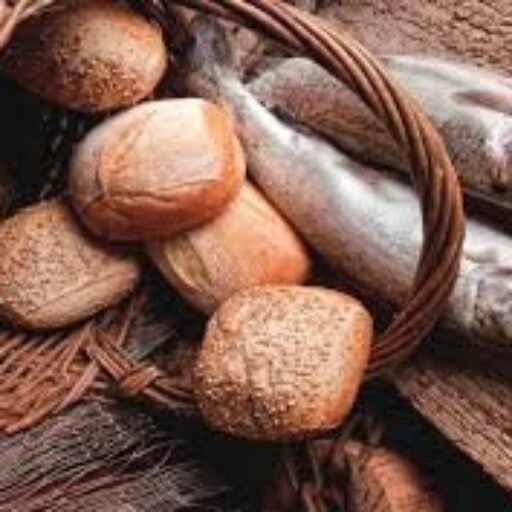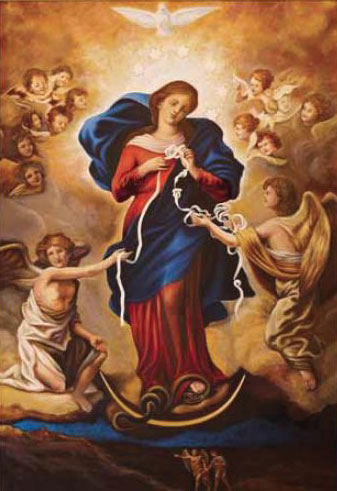
by Vincent | Oct 5, 2015 | Reflections, Religion
Some months ago a classmate of mine in the Diocese of Derry asked if I’d conduct a Mission in his parish. Though my initial email was to thank him for asking me and saying that I’d think about it, the reply was thanking me for agreeing to do it!!! I must be more clear in my email:)
Anyway, it’s happening. The parish is Castlederg in Co. Tyrone. There are three churches in the parish but the “Mission” is in the Parish Church. That’s a good idea and leads to a better experience of congregation. Very good experience, I have to say. It’s an impressive display of faith and pride in the parish, and I’m glad to be part of it.
The theme is “Our Lady Undoer Of Knots”
So, for now a prayer that all goes well and, in time, I’ll let you know how it goes!!
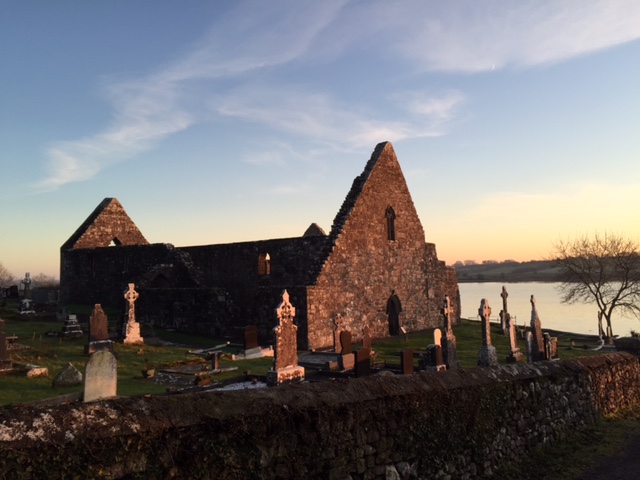
by Vincent | Sep 11, 2015 | Reflections, Religion
At this year’s Urlaur Pattern Mass we included a “Ceremony of Naming and Remembering” men and women of the parish who had entered religious life. We included Diocesan Priests as well as Religious. For some weeks we had sought from parishioners names of relatives, neighbours and friends who they knew who had become priests, brothers or sisters. We received in excess of 100 names. Though it’s certain there are others whose names we did not receive we were proud to be able to name and remember so many from our Parish who sought to answer God’s call. It is possible that not all of these remained in religious life but the truth of their “Yes” is what we sought to recall in Urlaur. It was a very moving and special moment in the tradition that is The Urlaur Pattern. Some people have requested this list be made available. We are happy to include it here. If you know of other names that should be included, please let us know and we will, in time, update this record.
Fr Anthony Bones, Stonepark
Sr Eilzabeth Bones, Esker
Sr Monica Bones, Stonepark
Sr Agatha Brett, Liscosker
Sr Bosco Cafferkey, Culgarriff
Sr Brigid Cafferkey, Tullgranny
Sr Gerard Cafferkey, Carrowbeg
Sr Margarget Cafferkey, Tullgranny
Bro Conrad Callaghan, Raherolish
Bro Peter Callaghan, Culclare
Sr Mary Gabriel Cassidy, Cahelahenny
Sr Aidan Caulfield, Carralackey
Sr Celestine Conway, Ballyglass
Bro Nathy Costello, Ballyglass
Fr Padraig Costello, Culmore
Fr JT Cribben, Carrowbeg
Sr Teresa Doherty, Ballyglass
Sr Annie Duffy, Culclare
Bro Declan Duffy, Clooncara
Fr Dominic Duffy, Ballyglass
Sr Eucharia Duffy, Glann
Sr Francis Duffy, Glann
Sr Francis (Katie) Duffy, Clooniron
Fr John C Duffy, Clooncara
Fr Kevin Duffy, Kilkelly
Sr Margaret Duffy, Glann
Fr Michael Duffy, Clooncara
Sr Monica Duffy, Clooncara
Sr Winifred Duffy, Kilmovee
Sr Bernardine Dunleavy, Glann
Sr Brigid Dunleavy, Kilkelly
Fr Louis Dunleavy, Sinolane
Sr Alphonus Egan, Tavrane
Sr Assumpta Flannery, Kilkelly
Sr Freda Flannery, Kilkelly
Fr James Flannery, Kilkelly
Sr Ursula Flannery, Kilkelly
Sr Bridie Foley, Barcul
Sr Kathleen Foley, Barcul
Sr Rose Foley, Barcul
Bro Bonaventure Frain, Rusheens
Sr Catherine Frain, Rusheens
Sr Mary Frain, Rusheens
Fr Tom Freyne, Culcastle
Fr John Griffin, Culclare
Sr Enda Harrington, Glann
Sr Mary Harrington, Glann
Sr Patricia Hayden, Culcastle
Fr Joseph Henry, Cloonamna
Sr Aidan Higgins, Culliagh
Sr Mary Joseph Higgins, Ballyglass
Sr Melanie Higgins, Culmore
Fr John Hunt, Sraheens
Sr Foncia Kearns, Rusheens
Fr John P Kelly, Kilkelly
Sr Baptist Kenny, Carralackey
Sr Gabriel Kenny, Carralackey
Sr Lena Kerins, Derrylahan
Fr James Lafferty, Ballyglass
Sr Rose Lafferty, Ballyglass
Fr Dominic Lydon, Shammar
Sr Eileen Lydon, Gowlaune
Sr Evelyn McDonnell, Cullgarriff
Sr Mary McDonnell, Cullgarriff
Sr Mary Walter McDonnell, Cullgarriff
Sr Ellie Mullen, Ballinrumpa
Sr Marie Mullen, Ballinrumpa
Fr Tim Mullen, Ballyglass
Fr Michael Murphy, Kilkelly
Sr Fulgentia (Nora) Nyland, Urlaur
Fr Fintan O’Beirne, Barcul
Fr Oliver O’Beirne, Barcul
Sr Jospehine O’Gara, Culliagh
Sr Rita O’Grady, Culmore
Fr Dan O’Mahony, Magheraboy
Fr Stephen O’Mahony, Magheraboy
Bro James Phillips, Urlaur
Sr Magdalen Phillips, Urlaur
Sr Mary Phillips, Urlaur
Sr Alphonsus Regan, Glann
Sr Angela Regan, Cloonamna
Sr Anne Regan, Egool
Sr Catherine Regan, Egool
Sr Eileen Regan, Egool
Sr Ita Kate Regan, Sraheens
Sr Mary Joseph Regan (Townland not given)
Bro Patrick Regan, Sraheens
Fr Patrick Sharkey, O.P. (Urlaur Abbey)
Sr Breedge Shiel, Kilkelly
Fr Brendan Shiel, Kilkelly
Fr Joe Shiel, Kilkelly
Sr Mary Jane Shiel, Kilkelly
Sr Maud Shiel, Kilkelly
Sr Muriel Shiel, Kilkelly
Sr Nany Shiel, Kilkelly
Fr Peter Shiel, Kilkelly
Sr Una Shiel, Kilkelly
Sr Cormac Shiels, Kilkelly
Sr Marie Theresa Shiels, Kilkelly
Sr Cecil Tarpey, Kilkelly
Fr James Tarpey, Kilkelly
Sr Kitty Tarpey, Kilkelly
Bro Timothy Tarpey, Kilkelly
Fr Dominic Towey, Aughadeffin
Sr Mary Oswald (Ann) Towey, Aughadeffin
Fr James Walsh, Tavrane
Sr Stanislaus Walsh, Tavrane

by Vincent | Sep 5, 2015 | Reflections
Sometime ago, I asked for suggestions around what might be helpful on this blog. The other day I got one such suggestion. It was short and to the point, asking that I might write something on grief ….
The day I received that message was the day after I came home from holidays. While I was away, I received word that a young man from the parish had died in Adelaide. He was 28 years old, a hard worker and died doing what he liked to do, as someone put it at his Funeral Mass; “earning a day’s wage for a day’s work”. May he rest in peace.
For nearly two weeks I’d known that I was coming home the day before his Funeral Mass so, for much longer than usual, I had the chance to prepare a few words. That said, no words came to me, much as I tried to find them. I called to his home the evening I arrived and noticed the field beside his family home filled with cars and many young men from the parish, together with some of our older parishioners directing traffic, helping to park cars and being, what they needed to be, “supportive”. Saddened though I was, there was something in this display of solidarity that was wrapped in reassurance. People are not left alone when help is needed. It struck me that many of these young men were grieving the loss of their former team-mate on Kilmovee Shamrocks, mourning the loss of one who emigrated about five years ago but kept in touch with friends and family. Their grief expressed itself in “high-vis” jackets, in standing at the end of the road and directing those who wished to visit the home, say a prayer and offer condolences. Their grief may or may not have included tears but their grief was real. Thankfully it found a way to express itself – in “hands-on” help at a difficult moment.
Likewise the neighbour, whose field was being used, filling in soft spots with chippings so that cars could enter and leave the field without getting stranded. His opening the gap in a much cherished field was his way of grieving the “neighbour’s son” who was a daily visitor to his own family home during his childhood years. This man’s sister told me afterwards that it was “the hardest week of our lives”. She too knew grief as she remembered the boy, now a man sleeping in death’s arms, and the joy he brought to their kitchen with his childish stories and impish ways. The elderly neighbour down the road who seldom leaves his house had made the journey to pay his respects “Did you know him well?” I asked “There was scarcely a day he wasn’t here when he was a boy. He was a mighty worker”. Grief that took a man who seldom travels to see again the neighbours and tell them he was sorry for their loss. “I didn’t think I’d be able for the Funeral he told me”. Maybe he meant able to be in the church with so many people for so long but maybe too, he just wasn’t able to take in the fact a twenty-eight year old had died. Grief takes many forms and expresses itself in a myriad of ways.
I took my place in the home. I looked at the coffin and the young man within. I looked at his parents, brothers and sisters and wondered what I could ever say that could even go close to being a comfort. They weren’t sobbing or bent over in visible heartbreak but they were devastated. Happy perhaps, to have him home for the few hours. It had been a long wait and a long journey but there was a hard reality in that room. One of the children had died. Grief was present. Grief is real.
I searched for something there – something I could use as a landmark, a pointer that might in time, lead to a better place and a happier moment. Nothing came to me, much and all as I wanted it to. I looked at photos, football jersey and faces but none of them uttered a word. Grief sometimes doesn’t allow much to be said and, even if it is said, seems to dull the hearing. “I’m truly sorry” I told them in turn or “sorry for your trouble” or “I wish you hadn’t to be here ….” I tried to vary my words a little but the core truth was the same, it was a difficult and heart breaking moment for this family.
Without finding a landmark, I left the house and walked back to my car, past lines of people waiting to do what I had just done. Lines of silent people. Yes, they were talking but nothing much was being said. Grief envelops a crowd and brings the crowd to a stilled silence. I’m sure there were hundreds there but very little was being said. Grief does that, it stills the crowd in us and quietens the voice in us. I thanked the lads in the field and noticed how attentive they were to their tasks. There were no mobiles or walkie-talkies but they were all in communication with each other, even in the large field that, I’m told, parked over the hours around a thousand cars. Grief brought a singleness of purpose to those young people. They wanted to do the right thing by their friend and his family. Maybe grief has its good points too. It brings out, on occasion, the best in us.
Later that evening I returned to the home for a little while. I sat at the kitchen table and remembered sitting there a few weeks ago when there had been a baptism in the family. I thought how different the atmosphere had been, how much more joyful the conversation but it struck me we were at the same table – sharing food. That much was the same. I’d found my landmark. The table! Something solid around which people gather and from which they’re fed. Altar and Eucharist.
Maybe that’s what we search for in grief. That “landmark” that reminds us of what remains the same rather than what has changed. It may well be the love we had for a person, the need we felt for them the intention we had to be good to and for him or her. It might be a shared memory, a story, a journey – togetherness that remains as was, in spite of all that has happened. Grief has the ability to devastate us, to curl us up in a ball of uncertainty but I think too, it can take us to a place of recognition of the ultimate truth, what this person was in my life, all that he or she meant to me, remains constant.
I mentioned grief at the Funeral Mass. I said that I felt certain the family, member by member, the friends too, would be visited by grief. It might be a month or six; a year or more but someday tears will roll down the cheek and the stomach will tighten as if recoiling from a blow. The timing of its visit is not in our hands. Neither the duration of its stay. Grief sets out its own agenda and makes its own travel plans. Someone once said that they only way to ensure you never cry at a funeral is to never love anyone. The price we pay for love is grief. Grief at moving away, at separation and, of course, at death. There’s little, indeed nothing, that can be done to avoid it but maybe there’s a way to live with and through it.
A friend once told me that before a football game. the team manager was giving the warm up talk in the changing room. I’ve no doubt it was impassioned and colourful but the piece of advice my friend remembers, long after he hung up his boots for the final time, was around coping when the game wasn’t going your way. The manager told them if they found themselves going through a dry spell, when nothing seemed to work for them, that they shouldn’t try to be fancy. “Don’t try to solo the length of the pitch”, he told them, “you’ll not make it”. “Neither”, he said “try an elaborate pass” His advice was rooted in the simple. “Take a short pass from a team mate, move the ball to another, do something simple with the ball”. It makes such sense. It’s about getting confidence back, finding direction and knowing what you’re about. The manager concluded, according to my friend’s telling with these words; “If the game is going bad for you, do something simple with the ball. Play yourself back into the game”.
“Play yourself back into the game”. Grief? Connection? I think it’s something about finding something that gives you strength and confidence on the darkest days. It’s about knowing you are not on the pitch alone, that there are team mates there who will pass support to you and receive it from you. It’s about “doing something simple” to find peace for the moment and direction for the moments to follow. It’s about playing yourself back into the game because the bad patches pass and what’s important, the landmarks remain. Maybe it’s about reading a piece through which you’ve been consoled or spending some time with old photographs, it might be listening to a song, going for a walk or anything that connects you with the source of your grief, the one you miss. It’s not about doing anything dramatic. Just “something simple” … with the ball, with grief.
Is this enough about grief? Quite doubtful, I honestly don’t know but maybe it’s a start.
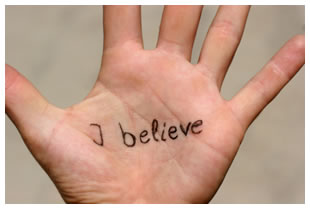
by Vincent | Aug 28, 2015 | Reflections, Religion
Few thoughts shared around Sunday’s Gospel ….
“What about you, do you want to leave me too?”
In our first reading there is mention of marriage. Central to the celebration of the Sacrament of Marriage is that moment when the man and woman (the husband and wife) say “I do”. The wording of the vows may differ on occasion and the terminology used may be slightly different but the answer boils down to those two words; “I do”. Nobody else can say them. It’s personal.
Likewise, in the Ceremony of Ordination, the man to be ordained is called from the seat – where he sits with his family and is addressed by the bishop. There are a number of questions asked and the answer to each one is “I am”. Nobody else can answer that – only the man being ordained. It’s personal.
The Feast of The Queenship of Our Lady too centres on that personal call to a young girl to become the Mother of Jesus. Only she could answer. It’s such a personal Gospel Passage. We are given the names of all involved; the Archangel Gabriel, the young woman Mary, the man to whom she was engaged, Joseph and the elderly cousin that needed to be visited, Elizabeth. It’s God’s way of saying this is a personal relationship. I know you by name. I call you by name. It’s personal.
Turning to Peter Jesus asks “Do you love me more than these others do?” He had to hear the words directly from Peter’s lips, like the time he asked him “But you, who do you say I am?” It’s as if God does not want pre-programmed answers or someone else’s words. It has to come from us. It’s personal.
I always loved that passage around the Easter days where the disciples as Jesus where they are to have the Passover. “Go down the street”, he told them, “you will see a man carrying a bucket of water. Follow him, go into the house he enters and ask “where’s the room that the Master may have the Passover?” He’ll take you to a large room, furnished with tables and chairs; make the preparations for us there.” I often wonder could that man, filling the bucket of water know what a central part he’d play in the great Story, the great “drama” of our faith? Could he have known he’d lead them to the Upper Room that leads us to weekly and daily worship around the Altar? That man was so important. We need to find this man in our own faith journey. We need to realise we are, at times, asked to be this man – this woman, that others may follow to find a better place.
Outside the emptied Tomb on Easter Sunday morning, the close friend of Jesus, Mary Magdalene, searched for him. She concluded they’d taken his body. It was the final humiliation of a personal friend. She saw a man and, presuming him to be the gardener, she asked where they’d put the body of Jesus that she might go and reclaim it. I wonder how exactly he spoke to her? What intonation did he use? We’re told he said “Mary” and whatever the tone, whatever his way of saying her name, she immediately recognised him. That’s the way He wants to be with us. He wants us to know he knows our names, that they’re important to Him. He wants us to know it’s personal. Take a moment to imagine God speaking your name now. How would He say it? Would you recognise Him in the tone used? It’s personal.
We gather on days like this – at Sunday Mass – and we become a congregation, a MASS of people but we are and remain individuals. “The Lord be with you”, “And with your spirit”. Only YOU can answer that. It’s so important. The priest is reassured by you that you believe he is standing in the right place, doing the right thing and that it truly matters. Only you can say it. Don’t ever under estimate the power of your presence in the church. Were you not here, we’d be the poorer for it. Every voice matters. It’s personal.
It can be easy to get lost or to hide in the crowd. We can allow our face be hidden and our voice silenced. At day’s end, however, it’s about doing the exact opposite. Our gathering in church is about showing face and finding voice.
The little boy in the crowd found his voice as he announced he had “five loaves and two fish”. He offered what he had and as his offering was taken to Jesus, I imagine him feeling ten foot tall. He had made a difference but then he heard the adult in the Apostle say “but what is that between so many?” It must have been a crushing moment. I wonder was it the turning moment for Jesus? Did he say to himself that he’d let them all know the boy’s offering was more than sufficient. Why? Because it came as a personal response to a given need. The boy was willing to give what was personal to him. We should never under estimate the potential of our offering.
There are two singers from home, Makem and Clany (both now deceased, R.I.P.) and I have a recording of a live concert of theirs. One of the songs performed is an old folk song “Wild Mountain Thyme” or “Will you go lassie go?” There’s a lovely moment in the final chorus of the song when Liam Clancy speaks the lines of the chorus and the audience sings them back to him. I love that moment. He turns the audience from being listeners to being performers, from being receivers to being partakers. He allows them find the voice within. I sometimes think that’s what being a priest is about. It’s not that I am holier than others, more closely linked with the Altar than others for all too often I am aware of my own fragility and sinfulness. It is about me knowing that in the struggle of life, the struggles of faith, we share a common journey. I sometimes think I am just helping people find the voice that is already there – finding the words in the drama that they already know and having found them, allow them to be used.
It’s great to see so many people at Mass and to know that many others join us in prayer. The numbers are important and give us a sense of togetherness but the individual commitment is vital.
So we finish where we began; Jesus asks “so what about you? Are you going to leave me too?” We find our response; we make it our own and personal:
“Lord, to whom shall we go? You have the message of eternal life”.
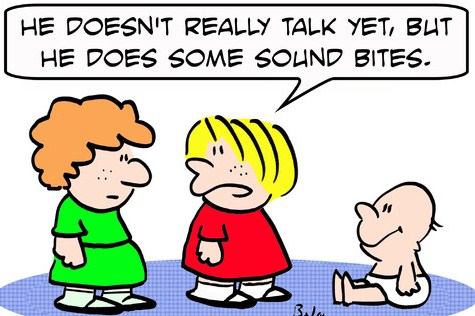
by Vincent | Aug 21, 2015 | Reflections, Religion
I celebrated Mass a little while ago. The First Reading was from the Book of Ruth and recounted the story of Ruth’s mother-in-law wanting to send her back to her own people following the death of her son (Ruth’s husband). She felt this was the right course of action and that Ruth would do better among her own people. Ruth protested, saying that she wanted to stay with her
“Wherever you go, I will go. Wherever you live, so shall I live. Your people will be my people and your God will be my God too”
It was loyalty at its selfless best. I said that sometimes couples select these words for their Wedding Mass. In so doing, I believe it likely, they feel they are words of love between spouses. So they could be. So they should be. The reality however is that their origin lies elsewhere and though they can be applied in this setting, the fuller story of their origin tells a different story.
In the Gospel too, Jesus is asked to summarise the teachings, the commandments. He does so by saying:
“You must love your God and love your neighbour … On these two stands all the teaching ….”
Though wiling go give the summary, the truth remains in the fullness of the story. It is there the full reality is found. Sound bites point us in a direction but they are not the full story.
In a way, I suppose, I was saying that the “sound bite” can be dangerous. It’s meant to be a help but can never be the full story. We need to go deeper, to a place where the fullness of the story allows the story be told in full ….
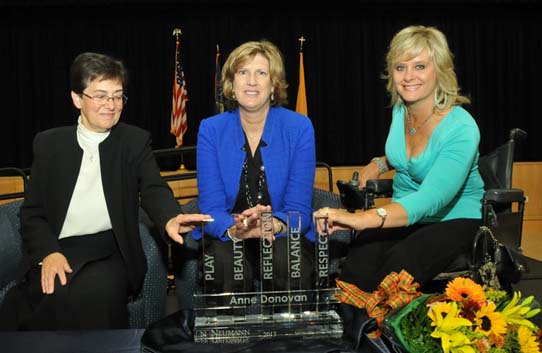
by Vincent | Aug 19, 2015 | Reflections
Searching
I met a priest last night and, in conversation, we mentioned a nun from home who works in Philadelphia. She is Sr Marguerite O’Beirne, OSF. I wasn’t sure where she worked or what order she belongs to. I knew she was one of the Franciscan Family as is he.
so what do you do?
I looked up Google today and found her instantly! I got her number and we just had a long overdue chat. That was good. I’m glad I called.
you said something about a Quick Thought”?
That’s right …. and in a roundabout way!
Do tell!
In searching for her I came across a piece about her meeting a former student who had been injured in an accident over thirty years ago. The Sister from home, who was Principal of her High School at the time. arranged a Basketball Game as a fundraiser for her. A well known Female Basketball Player, Anne Donovan, from New Jersey agreed to be part of this. They raised over $10,000 to help the student and her family through that difficult time.
Twenty-nine years later they met to recall the event and to acknowledge the role of the Basketball Player. Anne Donovan addressed the students and spoke of her faith. She concluded by advising the students to focus on life, have a sense of purpose and to nourish their faith.
and this is the thought (found in a round about way!!)
She then shared the five traits that she believes makes a person successful, not only in sports but in life: fortitude, attitude, integrity, trust and humility. It’s no accident, she explained, that the first letters of those qualities spell “faith.”
“Have your faith in your pocket and just go for it,” she concluded.
I liked that!
“Have your faith in your pocket and just go for it”

